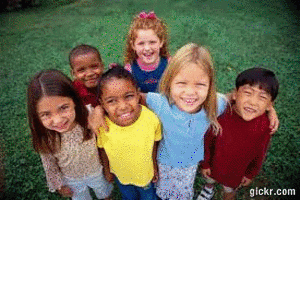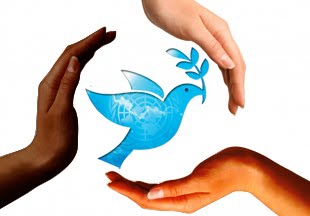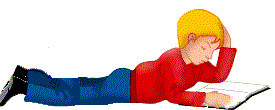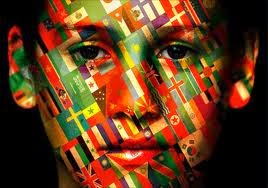Universal: It is the duty of States, regardless of their political, economic and cultural systems, to promote and protect all human rights and fundamental freedoms.
Indivisible: All rights are considered equal and as such there is no hierarchy of rights. Economic, social, cultural, political and civil rights are all equally important.
Interdependent and interrelated: The enjoyment of one human right often depends on the ability to freely exercise other human rights. For example, the right to education cannot be fully realised if gender, racial or other forms of discrimination limit access to education. Equally, the right to food or the right to the highest attainable standard of health depend to a large extent on the capacity of affected communities to organise themselves (freedom of association) and to call attention to inefficiency, corruption or discriminatory practices in the provision of services (freedom of expression).

UN DECLARATION OF THE RIGHTS OF THE CHILD;
UNIVERSAL DECLARATION OF HUMAN RIGHTS.
CLICK FOR MULTI ETHNIC KID IMAGES
THINGS ALL CHILDREN NEED

KIDS HAVE RIGHTS TOO..
HIP, HIP, HOORAY FOR CHILDREN ALL AROUND THE GLOBE!
KNOW AND UPHOLD THE RIGHTS OF YOUNG ONES WORLDWIDE.
KNOW AND UPHOLD THE RIGHTS OF YOUNG ONES WORLDWIDE.

UNIVERSAL DECLARATION OF HUMAN RIGHTS @
http://www.un.org/en/documents/udhr/
RIGHTS OF THE CHILD @
http://www.cirp.org/library/ethics/UN-declaration/
(United Nations Cyber School Bus (Plain Language Version)
3. You have the right to a name and to be a member of a country.
4. You have a right to special care and protection and to good food, housing, and medical services.
5. You have the right to special care if handicapped in any way.
6. You have the right to love and understanding, preferably from parents and family, but from the government where these can not help.
7. You have the right to go to school for free, to play, and to have an equal chance to develop yourself and to learn to be responsible and useful.
8. You have the right always to be among the first to get help.
9. You have the right to be protected against cruel acts or exploitation, e.g. you shall not be obliged to do work which hinders your development both physically and mentally.
10 You should not work before a minimum age and never when that would hinder your health, and your moral and physical development.
11. You should be taught peace, understanding, tolerance and friendship among all people.
United Nations

http://www.un.org/en/documents/udhr/
RIGHTS OF THE CHILD @
http://www.cirp.org/library/ethics/UN-declaration/
(United Nations Cyber School Bus (Plain Language Version)
DECLARATION OF THE RIGHTS OF THE CHILD
1. All children have the right to what follows, no matter what their race, color, sex, language, religion, political or other opinion, or where they were born or who they were born to.
2. You have the special right to grow up and develop physically and spiritually in a healthy and normal way, free and with dignity. 1. All children have the right to what follows, no matter what their race, color, sex, language, religion, political or other opinion, or where they were born or who they were born to.
3. You have the right to a name and to be a member of a country.
4. You have a right to special care and protection and to good food, housing, and medical services.
5. You have the right to special care if handicapped in any way.
6. You have the right to love and understanding, preferably from parents and family, but from the government where these can not help.
7. You have the right to go to school for free, to play, and to have an equal chance to develop yourself and to learn to be responsible and useful.
8. You have the right always to be among the first to get help.
9. You have the right to be protected against cruel acts or exploitation, e.g. you shall not be obliged to do work which hinders your development both physically and mentally.
10 You should not work before a minimum age and never when that would hinder your health, and your moral and physical development.
11. You should be taught peace, understanding, tolerance and friendship among all people.

United Nations
Universal Declaration of Human Rights

Simplified Version
This simplified version of the 30 Articles of the Universal Declaration of Human Rights has been created especially for young people.
1. We Are All Born Free & Equal. We are all born free. We all have our own thoughts and ideas. We should all be treated in the same way.
2. Don’t Discriminate. These rights belong to everybody, whatever our differences.
3. The Right to Life. We all have the right to life, and to live in freedom and safety.
4. No Slavery. Nobody has any right to make us a slave. We cannot make anyone our slave.
5. No Torture. Nobody has any right to hurt us or to torture us.
6. You Have Rights No Matter Where You Go. I am a person just like you!
7. We’re All Equal Before the Law. The law is the same for everyone. It must treat us all fairly.
8. Your Human Rights Are Protected by Law. We can all ask for the law to help us when we are not treated fairly.
9. No Unfair Detainment. Nobody has the right to put us in prison without good reason and keep us there, or to send us away from our country.
10. The Right to Trial. If we are put on trial this should be in public. The people who try us should not let anyone tell them what to do.
11. We’re Always Innocent Till Proven Guilty. Nobody should be blamed for doing something until it is proven. When people say we did a bad thing we have the right to show it is not true.
12. The Right to Privacy. Nobody should try to harm our good name. Nobody has the right to come into our home, open our letters, or bother us or our family without a good reason.
13. Freedom to Move. We all have the right to go where we want in our own country and to travel as we wish.
14. The Right to Seek a Safe Place to Live. If we are frightened of being badly treated in our own country, we all have the right to run away to another country to be safe.
15. Right to a Nationality. We all have the right to belong to a country.
This simplified version of the 30 Articles of the Universal Declaration of Human Rights has been created especially for young people.
1. We Are All Born Free & Equal. We are all born free. We all have our own thoughts and ideas. We should all be treated in the same way.
2. Don’t Discriminate. These rights belong to everybody, whatever our differences.
3. The Right to Life. We all have the right to life, and to live in freedom and safety.
4. No Slavery. Nobody has any right to make us a slave. We cannot make anyone our slave.
5. No Torture. Nobody has any right to hurt us or to torture us.
6. You Have Rights No Matter Where You Go. I am a person just like you!
7. We’re All Equal Before the Law. The law is the same for everyone. It must treat us all fairly.
8. Your Human Rights Are Protected by Law. We can all ask for the law to help us when we are not treated fairly.
9. No Unfair Detainment. Nobody has the right to put us in prison without good reason and keep us there, or to send us away from our country.
10. The Right to Trial. If we are put on trial this should be in public. The people who try us should not let anyone tell them what to do.
11. We’re Always Innocent Till Proven Guilty. Nobody should be blamed for doing something until it is proven. When people say we did a bad thing we have the right to show it is not true.
12. The Right to Privacy. Nobody should try to harm our good name. Nobody has the right to come into our home, open our letters, or bother us or our family without a good reason.
13. Freedom to Move. We all have the right to go where we want in our own country and to travel as we wish.
14. The Right to Seek a Safe Place to Live. If we are frightened of being badly treated in our own country, we all have the right to run away to another country to be safe.
15. Right to a Nationality. We all have the right to belong to a country.
MUST CHILDREN BE A PART OF INTERNATIONAL ARMIES?
STOP THE ABUSE OF LITTLE ONES...
AMNESTY INTERNATIONAL has a special website with information on:

RELATED LINKS AND MORE RESOURCES @
http://www.amnestyusa.org/children/page.do?id=1011016
Child Soldiers;
Executions of Youngsters and Teenagers; +
Human Rights Issues in the o in the Classroom

RELATED LINKS AND MORE RESOURCES @
http://www.amnestyusa.org/children/page.do?id=1011016

Human Rights Framework
Protecting and Realizing Children's Rights
Understanding the Convention & Optional Protocols
Unicef in Action
http://www.unicef.org/crc/
Protecting and Realizing Children's Rights
Understanding the Convention & Optional Protocols
Unicef in Action
http://www.unicef.org/crc/

LEGAL RIGHTS OF CHILDREN






















